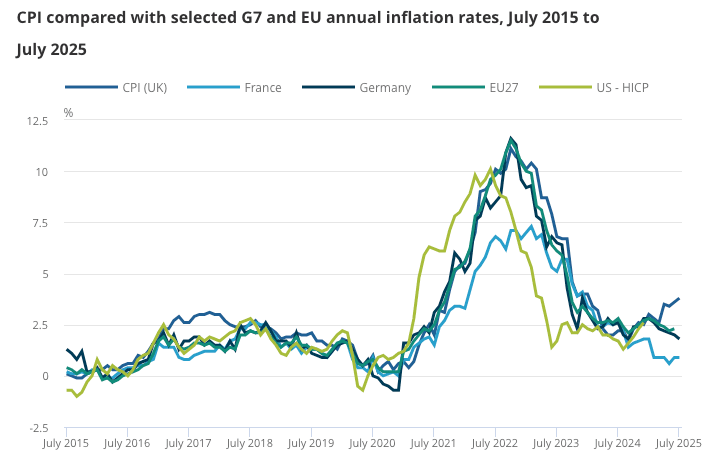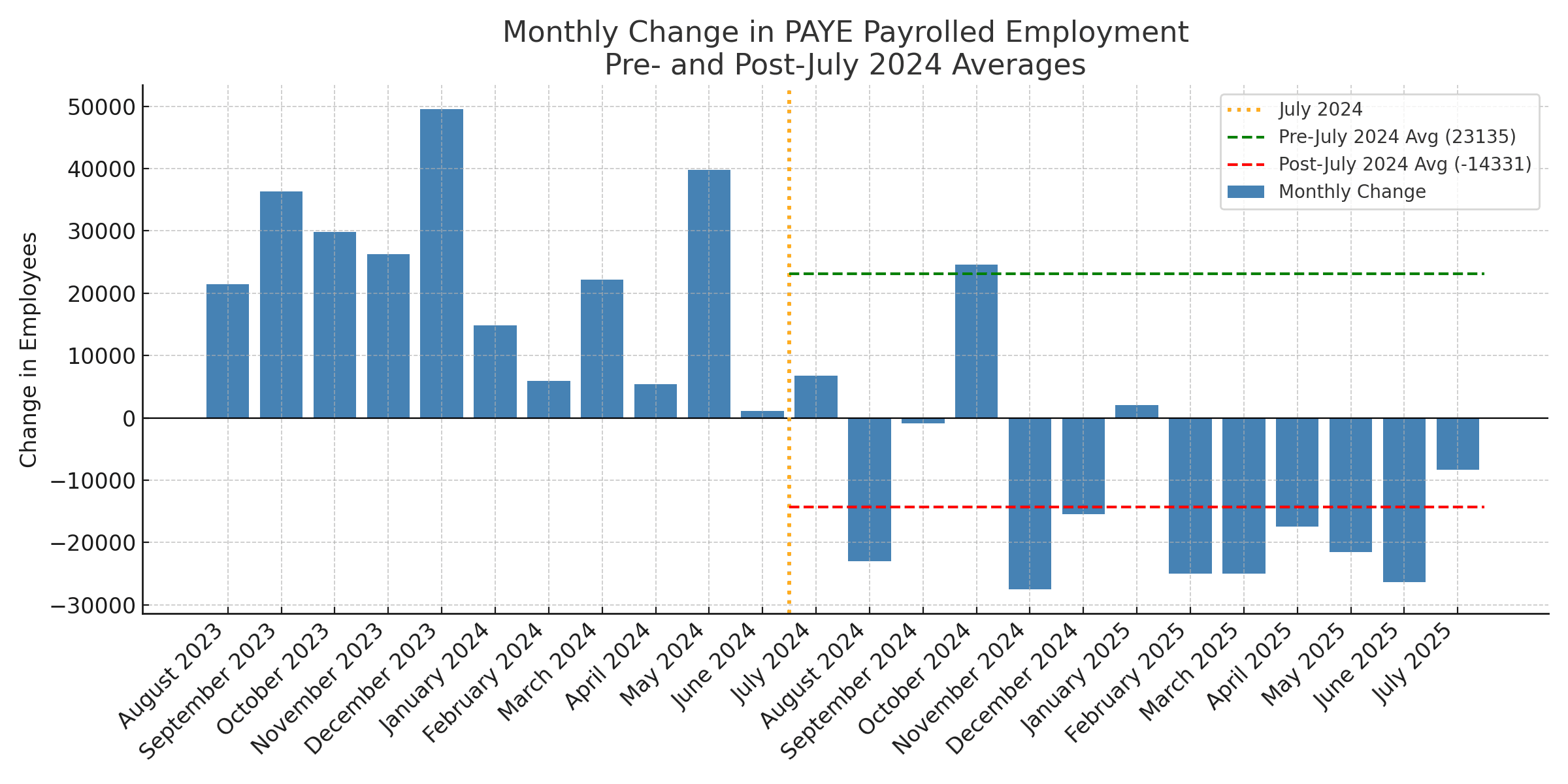- Pound to Euro today: 1.1562
- Pound to Dollar today: 1.3403
- Lock in today's rate for future payments.

Denis Healey (left), Helmut Schmidt and Wim Duisenberg. By Photograph by Rob Mieremet - GaHetNa (Nationaal Archief NL), CC0.
The British Pound is facing comparisons with Britain’s 1976 currency crisis as economists warn of a dangerous mix of high inflation, weak growth and fiscal stress.
"Rachel Reeves is on course to deliver a Healey 1976-style crisis in late 2025 or '26," says Andrew Sentance, an independent economist who served on the Bank of England's Monetary Policy from October 2006 to May 2011.
"Like Healey, she has massively boosted public spending, borrowing and taxes, fuelling both demand-pull and cost-push inflation," he said in response to this week's surprisingly strong UK inflation print.
Denis Healey served as Chancellor of the Exchequer in the Labour governments of Harold Wilson and James Callaghan, a period marked by "stagflation," a combination of high inflation and economic stagnation.
This wee it was reported UK inflation rose to 3.8% year-on-year in July, while services inflation rose to 5.0%. Sentance warns that unless policies are reversed, the UK risks an economic crash driven by fiscal overreach and political divisions.
The comparisons with Healey are pertinent as he oversaw an economy characterised by high inflation, rising unemployment, a large fiscal deficit and high borrowing, a falling Pound and a balance of payments deficit. The economic malaise was deepened by chronic political gridlock in the governments Healey served.
Unions were more powerful in the 1970s than they are today, and aggressive industrial action allowed workers to demand significant inflation-boosting pay rises.
This Friday's newspaper headlines are a throwback to those one might have regularly seen in the 1970s: "Britain facing autumn of discontent", says The Telegraph, reporting that "The RMT union announced on Thursday that commuters would endure a week of industrial action on the London Underground. GPs, junior doctors and nurses may strike during winter, the health service’s busiest time of year, over demands for pay and funding."
This as some council workers in Birmingham remain on strike, allowing the rubbish to pile up.
Prime Minister Keir Starmer had hoped to keep unions on side by handing out £10BN worth of backdated public sector pay rises after taking office, which economists say helped drive inflation higher. It's that same inflation that is leading to a potential Autumn of Discontent as workers seek to protect their family budgets.
It only piles pressure on the government to spend more.
In 1976, the UK government was forced to seek a record $3.9 billion loan from the International Monetary Fund (IMF) to address its economic difficulties.
Sentance's warnings come as the pound is already said to be grappling with an economy that economists say is already in stagflation.
"For sterling, higher inflation alongside the backdrop of a weaker labour market makes for a challenging environment and as a result, the post-CPI lift in the pound has been unwound. A more stagflationary environment is a headwind for the currency," says Justin McQueen, a market analyst at Reuters.
Alongside high inflation, UK economic growth is slowing: having put in a solid first quarter (0.7%), it slowed to 0.3% q/q by the time of the second quarter.
The Confederation of British Industry says that although the economy began 2025 on a strong note, its surveys suggest that underlying activity remains sluggish due to persistently weak demand and gloomy sentiment.
It finds that higher employment costs following the 2024 Autumn Budget are feeding into decisions around pricing, capital expenditures, and hiring.
Thursday's UK PMI survey meanwhile showed the economy likely expanded again in August, but it reported an ongoing deterioration in the labour market as firms cut back on hiring, largely because of the higher taxes placed on employment.
Above: Changes in the PAYE measure of employment bear the fingerprints of a change in government policy.
The persistence of price pressures has prevented the Bank of England from easing monetary policy more aggressively, which should continue to keep the Pound supported for the time being.
UBS says the pound is one of the highest-yielding currencies in the developed world, which should keep it supported by its "carry advantage" over the coming weeks. (Carry is where investors borrow in low interest rate currencies and invest proceeds into high interest rate currencies, boosting the recipient's value).
However, gains should be limited: "The UK is already in a stagflationary situation," UBS says in a note released August 22, citing output well below potential and a deteriorating labour market.
Danske Bank sees additional risks for the pound from the fiscal outlook and relative growth trends with the euro area.

Above: UK inflation dynamics are diverging from major peers.
"We increasingly see domestic factors and the relative growth outlook as becoming GBP negatives," the bank said in a note out Thursday 21 August.
It warned that tightening in the Autumn Budget could compound weakness just as global financial conditions deteriorate.
The National Institute of Economic and Social Research (NIESR) recently warned of a £51.1 BN shortfall that the government needs to plug via tax hikes or spending cuts to restore the £9.9BN fiscal headroom it apparently established in the previous budget.
In response, Chancellor Rachel Reeves is floating numerous tax-raising policies in the media, but has yet to float any ideas on getting spending under control.
If anything, it appears to be testing the waters on eliminating the two-child benefits cap.
It is little wonder analysts are apprehensive ahead of the November budget, and judging by recent FX market action, so too is the Pound.

